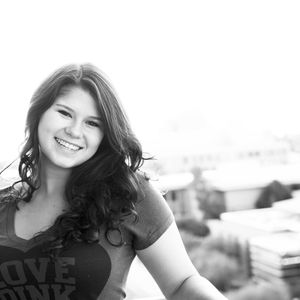Gluten is a protein containing two sub-proteins called glutenin and gliadin. These components are responsible for the luxurious texture of items containing gluten, i.e. breads, doughnuts, the delicious list goes on. When gluten is present, elastic bands between the sub-proteins form, trapping air and making the food light, fluffy, and stuck together.
I have heard the highest praises about a gluten-free diet. My boss told me avoiding gluten helped him with congestion caused by seasonal allergies. My friend Eleanor told me she had more energy. I wondered if these anecdotal praises would hold true for me. This curiosity lead me to attempt a one month, gluten-free challenge.
The hardest part of honoring any dietary restriction is starting. I don’t believe I have ever craved a sandwich or doughnut more than I did that first week. It is likely that the active thought of abstaining from gluten made me want it more. Nevertheless, I persisted.
Living in a large city (Phoenix, AZ) made access to gluten-free food relatively easy, most restaurants have a special menu for dietary restrictions. I did notice that in areas with smaller populations, it was harder to find gluten-free options. I spent more time cooking because there was always the possibility that there wouldn’t be anything for me to eat.
About two weeks in nothing seemed to change. I felt like I was wasting my time, until I cheated. After a long day, nothing sounded better than a breaded and fried sushi roll smothered in soy sauce. From the first bite, I felt weighed down, cramps, and bloating. This physiological response could have been due to the fact that I hadn’t eaten fried food in two weeks, not the gluten.
The sushi didn’t taste good to me. I had a similar experience when I first gave up meat. You crave the flavor that you remember, but, when you don’t eat something for a while, the flavors don’t live up to the memory.
This most-likely has to do with the way your brain remembers how you felt when eating the food. The more you eat a food that you like, the more times your brain confirms that you like it. When you haven’t been exposed to this in a while, the brain doesn’t register the reward to the same magnitude. For example, people who reduce their sugar intake then try a sugary treat they used to love will often find it to be “too sweet”. Basically, products with gluten in them just didn’t do it for me anymore after not eating them for a while.
After finishing the one month challenge, I was in no rush to return gluten to my diet. With gluten lurking in inconspicuous places like soy sauce and gummy candies, I became more conscious of what I was eating and how I felt. Restricting gluten also made me cut down on a lot of the treats that I normally would eat without thinking about like the cookies my apartment complex puts out every morning or the peanut butter bars my boss brings to our weekly meetings.
I believe that a gluten-free diet makes one more thoughtful of what they eat which results in making healthier decisions. The string of healthier choices leads the body to feel better, thus, the magic of a gluten-free diet debunked.
This is not to say the effects of a gluten-free diet wouldn’t be more profound for someone with celiac or a gluten intolerance. The guidelines provided to the affected by a medical professional should be followed.


